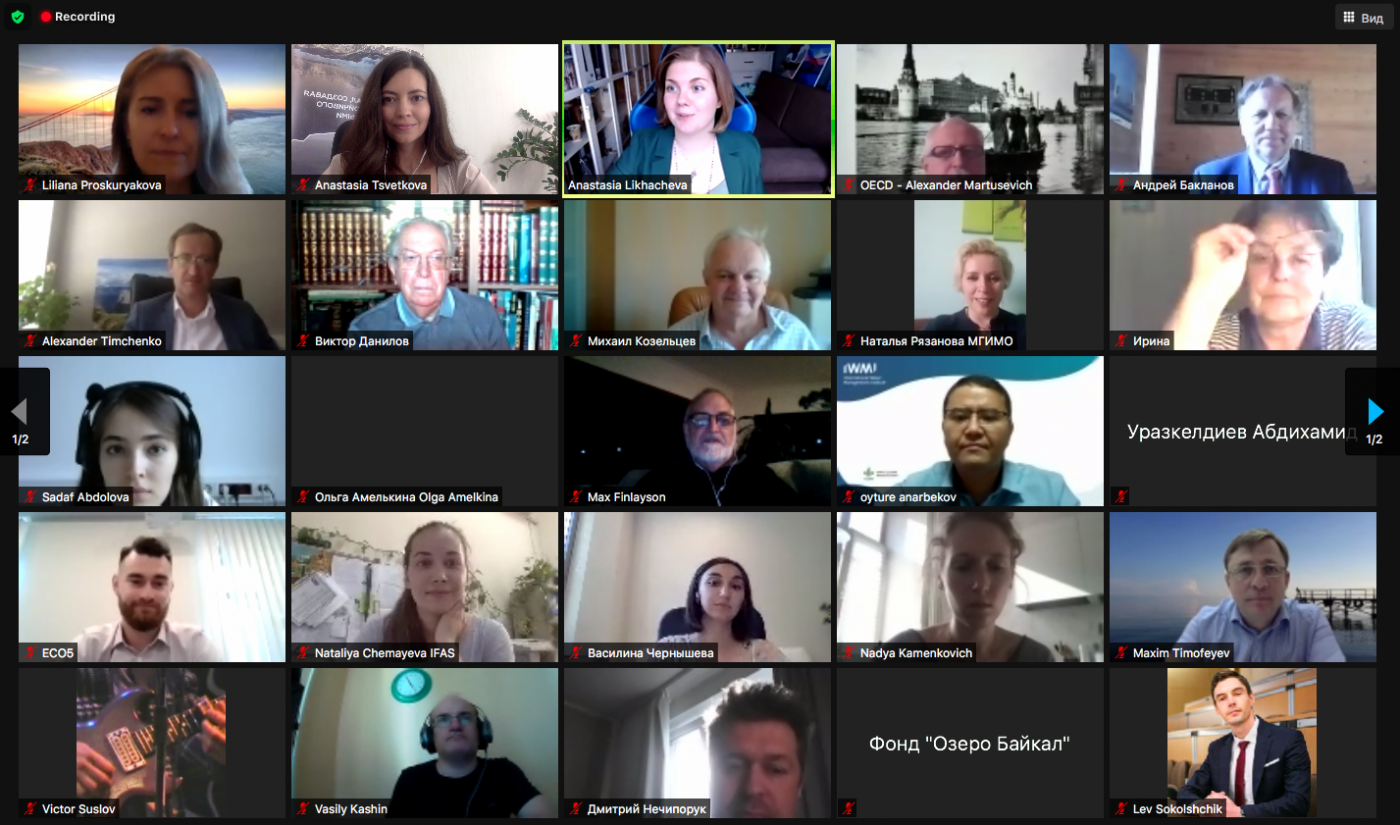International discussion on water management has been organized by Lake Baikal Foundation and CCEIS.
Thematic roundtable took place on the 8th of July. The organizers were Lake Baikal Foundation and the Centre for Comprehensive European and International Studies of the National Research University «Higher School of Economics» (CCEIS).
Experts on water resources from Russia, Central Asia and Australia have discussed the role of Russia in international water agenda and national model of water management. The representatives of the scientific and university communities, business and nongovernmental sectors have participated in the event.
Anastasia Likhacheva, the Director of the CCEIS, facilitated the first session on the international water strategy of Russia, taking into account unique national competitive advantages of the country. The participants tried to answer the question what kind of national strategy Russia should have, and what challenges exist in the water management sector in Russia now. Viktor Danilov-Danilyan, Doctor of Economics, Professor, Corresponding Member of the RAS, Scientific Head of the Water Problems Institute of the RAS, emphasized variety of issues, including lack of access to hydromonitоring information in Russia and drawbacks of the existing model of recording contamination spots in the water sources. The experts on limnology touched upon the degradation of the lakes all around the world and underlined the importance of the integrated strategy of the lake management. The experts from Central Asia shared their plans on solving water challenges using the concept NEXUS. During the session the guests shared the cases of the cross-country collaborations on conservation and research of the water resources between Russia, Finland, countries in Central Asia and China. In the concluding report of Liliana Proskuryakova, PhD in Political Science, Associate Professor, Deputy Laboratory Head, Institute for Statistical Studies and Economics of Knowledge (ISSEK), summed up information on promising instruments of collaboration at different levels: state administration – preference for multipartite («basin») agreements, alignment of water use standards and monitoring; at the level of educational and research organizations – preference for two-sided and many-sided competition of scientific and engineering projects and joint Bachelor programs; at the citizen level – participation in the implementation of the agreements and monitoring cases of the violations.
The CEO of Lake Baikal Foundation Anastasia Tsvetkova facilitated the second session, which was dedicated to the national water strategy. Cleaning of the rivers, lakes conservation, improvements of the effectiveness of the water management, adaptation of the water ecosystem to the climate change. A. Martusevich, Project Manager, Water Programme, GREEN Action Task Force secretariat, OECD, articulated the absence of the model at the country level, which would integrate approach to the provision of water security and achievement of water related SDGs. Mikhail Kozeltsev, the Director of the Centre for Sustainable Infrastructure Development Research at HSE, shared his view on the prospects of the «green credits» taxation system and instruments of the government regulations. In the context of the Baikal natural area the issue of funds and duties allocation between the capital, regions, and basin management has been discussed. M.Timofeev, Doctor of Biological Sciences, Director of the Research Institution of Biology, Irkutsk State University, emphasized threat of staff shortage, lack of expert position on Baikal and absence of development strategy of Lake Baikal. He has been supported by both representatives from the business sector and scientific community among the participants of the roundtable.
Based on the discussion, Lake Baikal Foundation together with the CCEIS will work on expert opinion on water problem for specialized agencies.
We thank all for the participation.
The recording of the roundtable is accessible via link.


